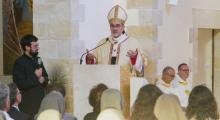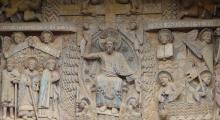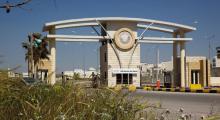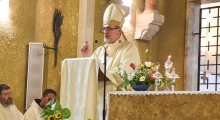Issued by the Catholic Center for Studies and Media - Jordan. Editor-in-chief Fr. Rif'at Bader - موقع أبونا abouna.org
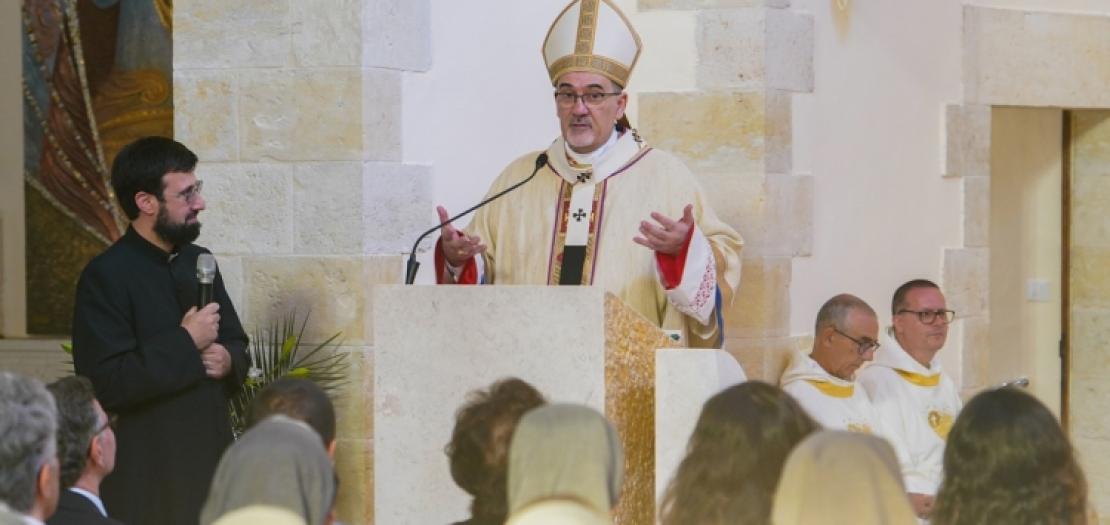
Following is the text of the homily by His Beatitude Cardinal Pierbattiasta Pizzaballa, Latin Patriarch of Jerusalem, marking the Feast of the Assumption of Blessed Mary dated August 15, 2025:
Dear brothers and sisters,
May the Lord grant you peace!
Today we are celebrating two important moments: the Solemnity of the Assumption of Mary and the anniversary of the foundation - precisely on August 15, 1425 - of the Olivetan Oblates of Mary (today “Oblates of St. Francesca Romana”), who were then granted the privilege of leading a regular religious life by Pope Eugene IV in July 1433.
So allow me to re-read what we live in the light of the Word of God that we have heard. I would like to dwell first on the reading from Revelation. It is a passage that has accompanied us several times during these painful months and has given us food for thought. Indeed, it is precisely at this time that we feel a strong need for true and meaningful words for ourselves. It is precisely the pain of this time, that does not allow us to make speeches about peace that are embellished and abstract, and therefore not credible, nor to limit ourselves to the umpteenth analysis or denunciation. Rather, it is about standing as believers within this drama, that will not end any time soon.
The huge red dragon with seven heads and ten diadems is a very clear representation of the power of evil in the world, of Satan, who has many heads and just as many diadems, a symbol of power, and who draws a third of the stars of heaven to the earth (Rev. 12:4), i.e. with an extraordinary destructive power. It strikes me that it is clear from this passage that the dragon, Satan, will never cease to assert himself and rage in the world, especially “against those who keep God’s commandments and bear witness to Jesus.” (12:17) We all want evil to be defeated as quickly as possible, to disappear from our lives. To paraphrase a passage from the Gospel, we would like to uproot the weeds from the wheat field (cf. Mt 13:30), from the life of the world. But that is not the case. We know this, but we must keep learning to live with the painful awareness that the power of evil will continue to be present in the life of the world and in our own lives. We will not be able to defeat the enormous power of this dragon with our human strength alone. It is a mystery, however hard and difficult it may be, that is part of our earthly reality. It is not resignation. On the contrary, it is the awareness of the dynamics of life in the world, without any escape, but also without fear, without sharing it, but also without hiding it.
But today’s celebration also tells us that there is someone before whom evil is powerless. The power of the dragon cannot prevail in the face of a birth, a mother who gives birth, who generates life. The dragon cannot triumph over the seed of life, the fruit of love.
The passage adds that the woman, the image of the Church, having given birth to the male child who will steadfastly lead the nations (12:5), has found refuge in the wilderness (12:6). God will provide for her in the desert. In the Bible, the desert is not a place of absence, but a place where God provides for them.
In our present experience, which is so hard and difficult, God continues to care for us, warning us above all against the power of evil, against the worldly power that really seems to reign on this earth and in this time.
We all want this war situation and its consequences on the lives of our communities to end as soon as possible, and we must do everything in our power to make this happen, but we should be under no illusions. The end of the war would still not mean the end of the hostilities and the pain they will cause. There will still be a desire for revenge and anger in the hearts of many people. The evil that seems to rule the hearts of many people will not cease to operate, but will always be at work, I would even say creatively. We will have to struggle with the consequences of this war on people’s lives for a long time to come. It really does seem that our Holy Land, which houses the highest revelation and manifestation of God, is also the place of the highest manifestation of Satan’s power. And perhaps precisely because it is the Place where the heart of salvation history is located, it is also the place where “the Ancient Adversary” tries to assert himself more than anywhere else.
So what is to be done? This very passage tells us: in this violent world, dominated by so much evil, we, the Church, the community of believers, are called to “give birth to the male child”, that is, to plant a seed of life in the world. In this environment characterized by death and destruction, we want to continue to have faith and join forces with the many people here who still have the courage to want what is good, and with them create contexts of healing and life. Evil will continue to express itself, but we will be the place, the presence that the dragon cannot overcome: the seed of life. We will live in the desert, not in the city. So we will not be the center of life in the world. We will not follow the logic that accompanies much of the life of the powerful. We will probably be few, but always different, never aligned, and perhaps for that very reason we’ll become a disturbing presence. We will still be the place where God cares for us, a refuge guarded by God. Better yet, we are called to become a refuge for those who want to preserve the seed of life, in all its forms.
Yes, it is true. We know that sooner or later the dragon will be defeated. But we know that we must persevere now because we know that the dragon will continue to rage through history. And the blood caused by all this evil, the blood “those who keep God’s commandments and bear witness to Jesus” (12:17), and that of all other innocent people, not just here in the Holy Land, in Gaza as in every other part of the world, will not be forgotten. It will not be discarded in some corner of history. Instead, we believe that this blood flows under the altar, mingled with the blood of the Lamb, united to the work of redemption to which we all are part of. That is where we are to stand. That is our place, our refuge in the desert.
The Christian life is, in short, a life that turns the world’s standards upside down. We also see this in so many saints and holy men and women of the past and present. St. Francesca Romana, who always wanted to consecrate herself to God, had her life turned upside down instead. She was forced to marry against her will. She then gave birth to several children, but they were gradually taken from her. She had no shortage of misunderstandings with the noble family she belonged to, because she squandered their money on the poor. In short, she had to endure so many hardships. It was as also in her case if Satan wanted to hinder her desire to live for God. The devil knows how to create obstacles. But he can never completely prevail. In fact, even Francesca Romana, who despite the sufferings always remained faithful to her desire to devote herself to God, managed to consecrate herself to God on August 15, 600 years ago. She was a woman who, accomplished the work of God despite the many obstacles that repeatedly thwarted her life, plans.
When God enters history, he turns people’s lives upside down. As is sung in the Magnificat of the Gospel: He who is above is humbled, he who is below is exalted. He who is rich becomes poor, and he who is poor becomes rich, and so on. The Lord himself first reverses his own situation. With the incarnation, he places himself on the side of man. He, who is God, becomes man. And he overturns every situation that he encounters on his way, and he does this until Easter, when even the reign of death is overturned. God works with all people in this way. He penetrates and overthrows them.
The Assumption of the Virgin Mary, which we celebrate, her complete participation, with body and soul, in the victory of Christ, is also a foretaste of our destiny as children of God, as baptized and redeemed by the blood of Christ. She, blessed because she believed, experienced that the end heralds the beginning. The deadly power of the dragon will not have the last word on life and history. Like Mary, we too can now sing in faith and hope, “Where, O death, is your victory? Where, O death, is your sting?” (1 Cor 15:55)
So as we rise from the Eucharistic table, today, we carry with us the certainty of Christ’s victory over death, the conviction that our life, however much it may be turned upside down by the dramatic events of today, is nevertheless the place where the dragon will not prevail, for it is a life bathed in the blood of the Lamb, in God’s infinite love.
May the Blessed Virgin intercede for us, so that this seed of life, a foretaste of the eternal life that awaits us, may be born in us and remain in us always. Amen.
+Pierbattista


